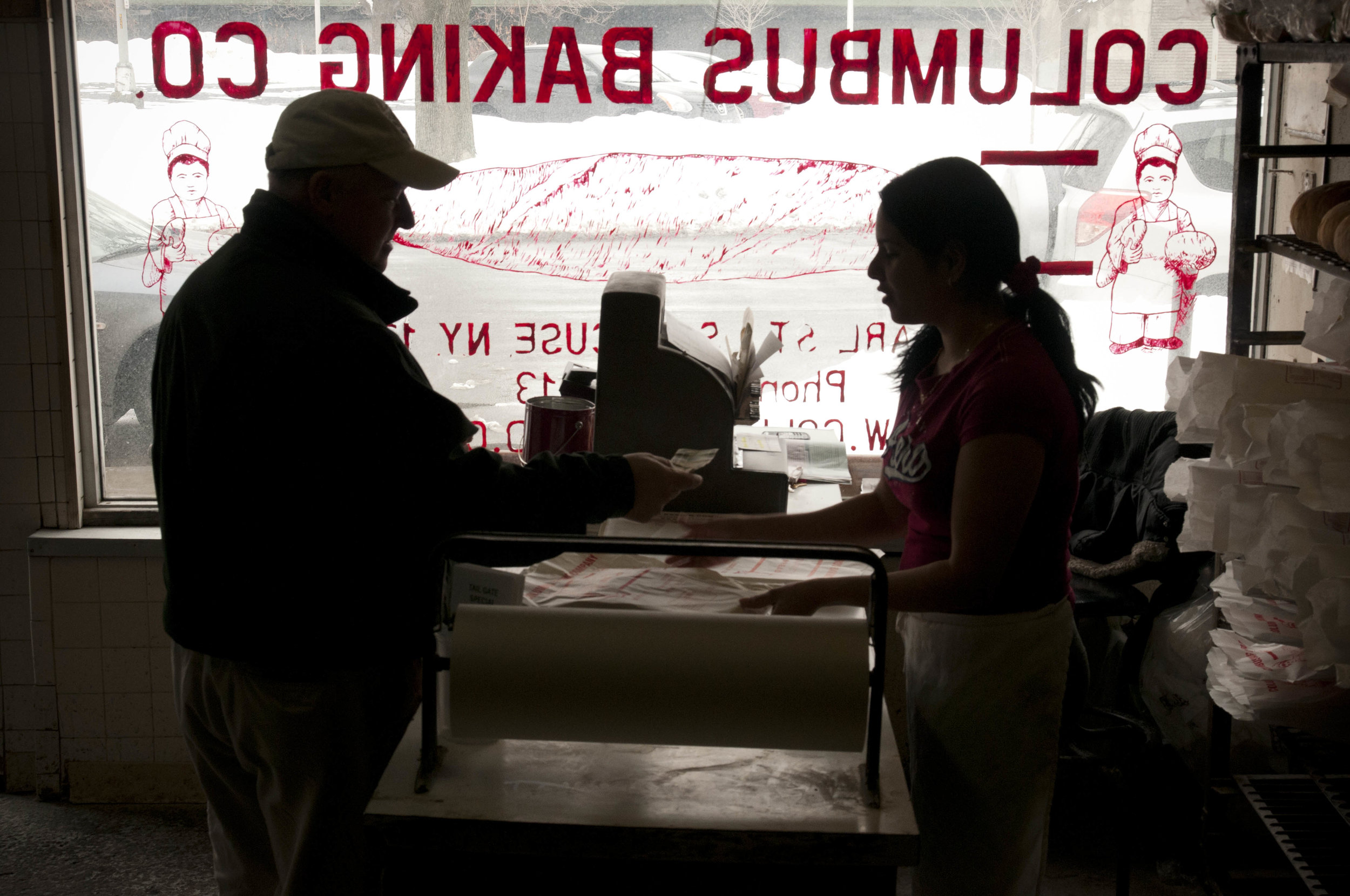Discover SYR: Columbus Bakery
An old man, slightly hunched over and sporting a bright orange winter hat, reaches into his wallet. His fingers shake as he hands the cashier two crisp singles and one quarter. It’s a routine as practiced as the bread-making process itself at Columbus Bakery.
Since 1895, Columbus Bakery has been making its bread the same way, in the same ovens. One hundred and sixteen years worth of flour dust has found refuge in every corner and crevice of the ceiling, wooden bread crates, and cracked picture frames. The smell of fresh baked bread sits heavily in the air, and the only sounds are dough being chopped in a single motion, the bell attached to the door signaling a customer’s arrival, and the crinkling of paper bread bags.
The baking process starts at 2 a.m. with mixing the dough, and by 8 a.m. the day’s first batch is hot and ready to serve. The last batch comes out around 3 p.m., and the bakery stays open until seven. This happens seven days a week, 364 days a year—it’s only closed on New Year’s Day.
On every one of those days, there is a line of customers. Third generation owner Jimmy Retzo takes pride in his customer base, a base that started when his grandfather owned the business. Aside from Syracuse regulars, Retzo says Columbus Bakery gets visitors who have long since moved on from the Salt City but stop back to buy the bread when they’re in town. It is a loyalty few businesses can maintain, but Columbus Bakery modestly thrives on. Around the holidays, lines stretch around the corner, and some people wait for more than an hour.
Of course, it’s not the bakery the customers flock to; it’s the bread. “Sandwich” features golden, crisp crust on the top and bottom with a soft middle. “Pointed” is a crusty Italian loaf that comes to a point at both ends. A “round” has a light crust completely surrounding the loaf, and “double baked” ensures the round will have an extra crunch. “Flat” is just that—a circular shape with perforated lines that allow for easy ripping. All loaves cost $2.25, which is less than the bland Freihofer’s loaves available at SU campus markets.
When customers at Columbus pay, the cash register’s blaring ring provides a constant reminder of the bakeshop’s longevity and commitment to routine. It sits on the left side of the single counter in the shop and dates back to the late 1930s. It hasn’t moved since.



